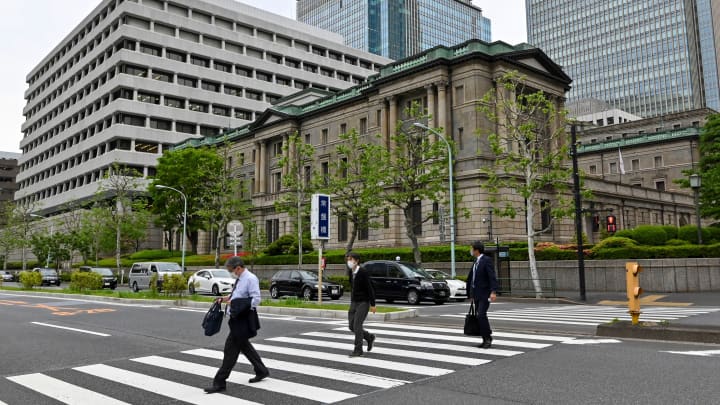The possibility of the Bank of Japan (BOJ) changing its policy in March is gaining attention, with traders and economists showing increased alertness, Bloomberg reported on Thursday.
Traders who were once certain about the BOJ ending its negative interest rate policy now estimate a 34 per cent chance of a shift by the March meeting. On the other hand, economists who previously deemed a move in March unlikely now see it as a “live” event.
Seven out of 15 Tokyo-based economists surveyed by Bloomberg suggest a chance of the BOJ ending negative interest rates in March, with three seeing it as highly likely and four considering it possible. However, most economists still anticipate April as the possible time for a policy shift. Market prices indicate an 85 per cent chance of a hike by the April meeting.
Experts warn that short- and medium-term bond yields may not adequately reflect the possibility of a policy change. If negative interest rates are lifted in March, bond yields could unexpectedly surge, potentially strengthening the yen and affecting longer-maturity debt.
Rising yields in Japan might prompt institutional investors to keep more funds within the country, potentially impacting global bond markets. Despite some signs of change in the market, traders have dialled back their bets, contrasting with the more open stance of BOJ officials regarding a policy shift.
The uncertainty surrounding central bank actions, such as potential rate cuts by the Federal Reserve, adds complexity to market dynamics. BOJ policymakers’ recent statements hint at readiness for a rate move, with Governor Kazuo Ueda expressing confidence in achieving stable inflation and Deputy Governor Shinichi Uchida discussing policy options post-negative rates.
BOJ board member Hajime Takata’s remarks further fueled speculation of a near-term rate hike, suggesting that the BOJ’s price target is within reach. Some economists interpret these signals as indicating an imminent rate hike, suggesting that market indicators like bond yields and the yen may not fully reflect this possibility.
Experts argue that it’s time for the BOJ to normalize policy, as radical monetary easing measures are deemed unnecessary.


